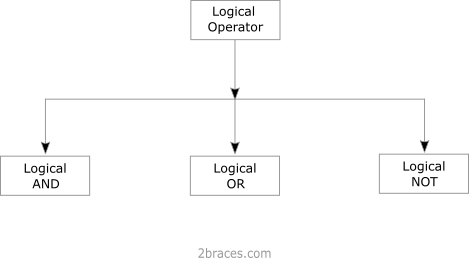C Foundation
What is C? C Compiler Installation C Extensions C Compiler C Interpreter C Program StructureC Basics
C Keywords C Data Types C Identifiers C Variables C Constant C Escape Sequences C Constant and Volatile C TypecastOperators
What is Operator C Comma Operator C Arithmetic Operators C Relational Operators C Logical Operators C Bitwise Operators C Conditional Operators C : : Operator C Operator PriorityBasic IO's
Basic IO's C Formatted Functions C Unformatted Functions C Common FunctionsControl Statements
What is Control Statement C if Statement C if else Statement C Nested if Statement C Else if Statement C Break Statement C Continue Statement C Switch Statement C Goto StatementLooping
What is Control Loop C for Loop C Nested for Loop C while Loop C Nested while Loop C do while Loop C Nested do while loopFunctions
What is Function C User Defined Functions C Recursion C Passing ParametersScope
Scope C Local Scope C Global ScopeStorage Classes
What is Storage Class C Auto C Extern C Static C RegisterArray
What is Array C One Dimensional Array C Two Dimensional Array C Multi Dimensional Array C Arrays Of StringsString
What is String C String FunctionsPointer
What is Pointer C Pointers Arithmetic C Pointer to Pointer C Pointers and Arrays C Pointers and Strings C Pointer to Functions Void Pointers Null Pointers C Null and Void PointerStructure
What is Structure C Struct within Struct C Array within Structure C Pointer to Structure C Structure and Function C Enum C Bitfield Structure C Type defUnion
What is UnionFiles
What is File C read a file C write a file C File Handling C Error Handling C Low Level Disk I/O C Other file functionsMemory Allocation
What is Memory Allocation C Malloc() C Calloc() C Free() C Realloc() C Coreleft()C Reference
All ASCII Code Basic C QuestionsC Interview
C Interview Sets All Star Patterns All Number Patterns All Alphabet Patterns All Series PatternsThe ones who are crazy enough to think they can change the world are the ones who do.- Steve Jobs
C Logical Operators
Why Logical Operator?
By learning relational operator, you should have a general idea how to use conditions in if statements by now, but imagine if you what to check two condition to execute certain sets of statement. what you will be doing there
Option A
- Using nested if statement( 2 if statements one after another) to evaluate two condition.
Option B
- Make use of Logical Operators
Answer
Though option A looks classic it fails in either or condition. In such case you are insisted to make use of Logical Operators with no choices.
Logical Operator in C
- Logical operators are used to check (or) compare the logical relations between the expressions.
- Logical operator, returns 1 if given condition is true, 0 if given condition is false.
Logical Operator flow
C provides 3 logical operator for comparing numeric quantities.

Logical Operator Table:
| Operator | Description | Example | Return Value |
|---|---|---|---|
| && | Logical AND | 7 > 3 && 8 > 5 | 1 |
| || | Logical OR | 7 > 3 || 8<5 | 1 |
| ! | Logical NOT | 5 != 5 | 0 |
Logical AND Operator
Let us write a C program to demonstrate logical AND operator
#include <stdio.h>
int main()
{
int a = 20;
int b = 10;
int c = 15;
if(a<b && b<c)
printf(" C is the greatest number of all");
else
printf(" C is not greatest number of all");
return 0;
}
- C is not greatest number of all
Note:
Here printf statement next to if conditional statement will execute only both conditions inside if statement is true otherwise else part will be executed.
Logical OR Operator
Let us write a C program to demonstrate logical OR operator
#include <stdio.h>
int main()
{
int a = 20;
int b = 10;
int c = 15;
if(c>a || c>b)
printf(" C is not smallest and may not biggest of all ");
else
printf(" C is smallest of all");
return 0;
}
- C is not smallest and may not biggest of all
Note:
Here printf statement next to if conditional statement will execute even either condition is true.
Logical NOT Operator
Let us write a C program to demonstrate logical NOT operator
#include <stdio.h>
int main()
{
int a = 20;
int b = 10;
if(a != b )
printf("a is not equal to b");
else
printf(" a is equal to b");
return 0;
}
- a is not equal to b
Note:
Here printf statement next to if conditional statement executes as a and b are different in numbers.
Related to Logical Operators

Report Us
We may make mistakes(spelling, program bug, typing mistake and etc.), So we have this container to collect mistakes. We highly respect your findings.
Programming
Electrical
Interview
© Copyright 2019